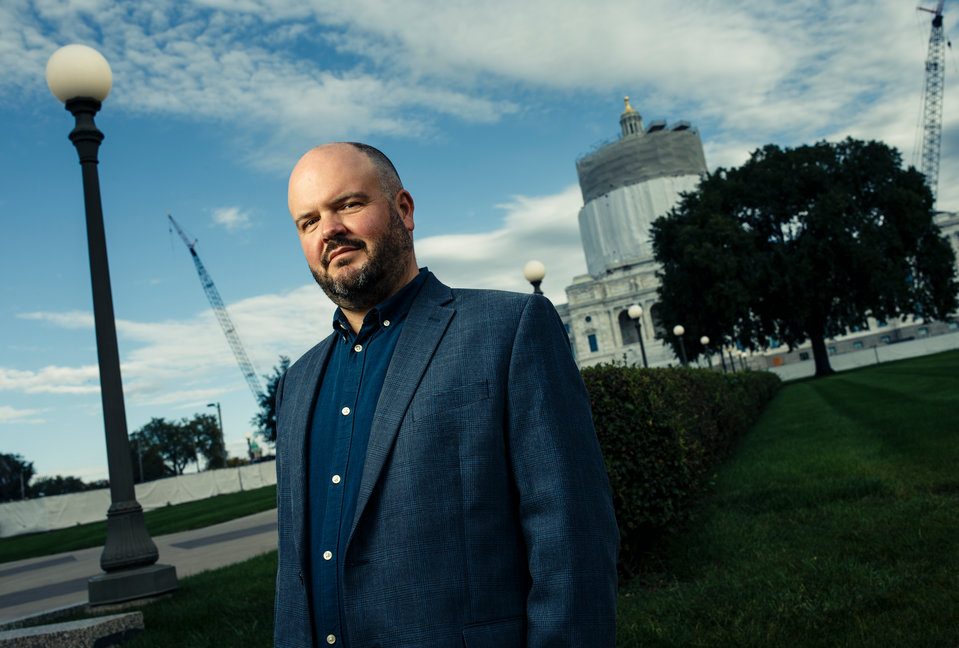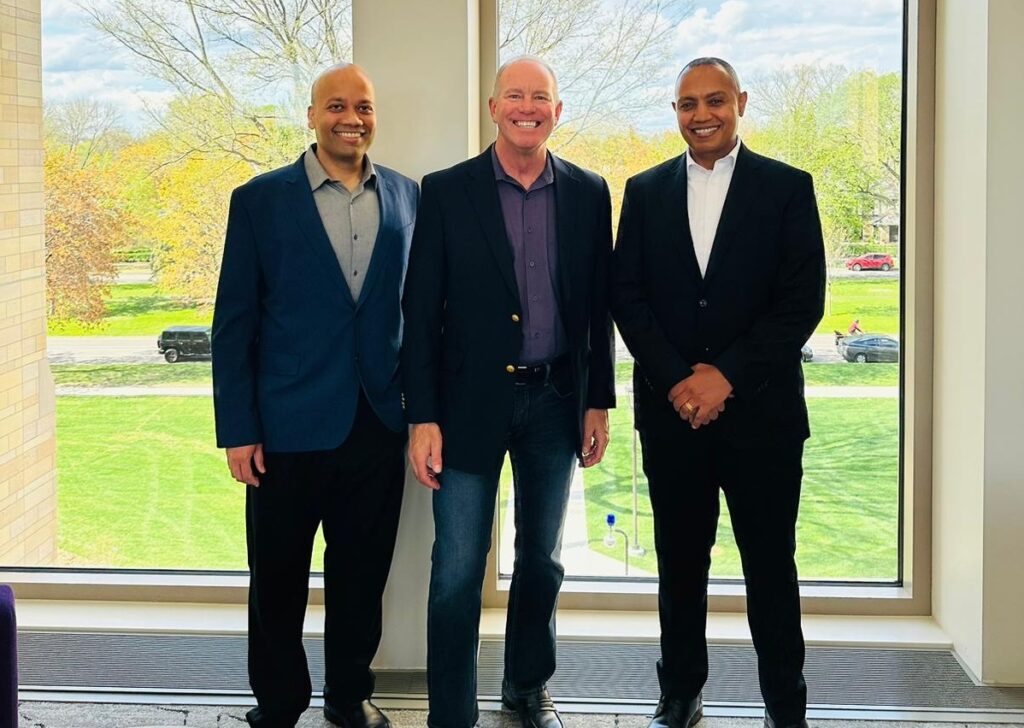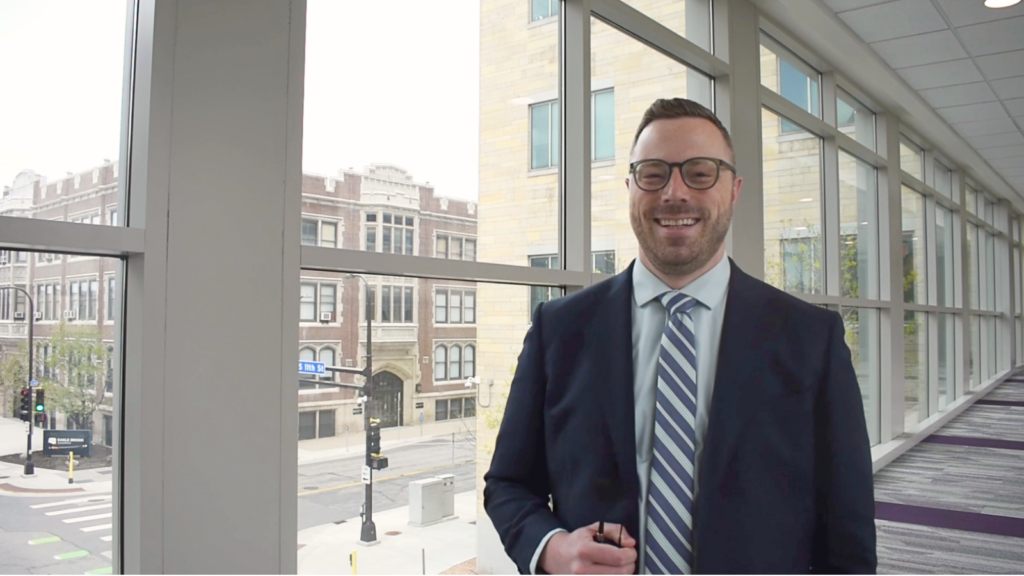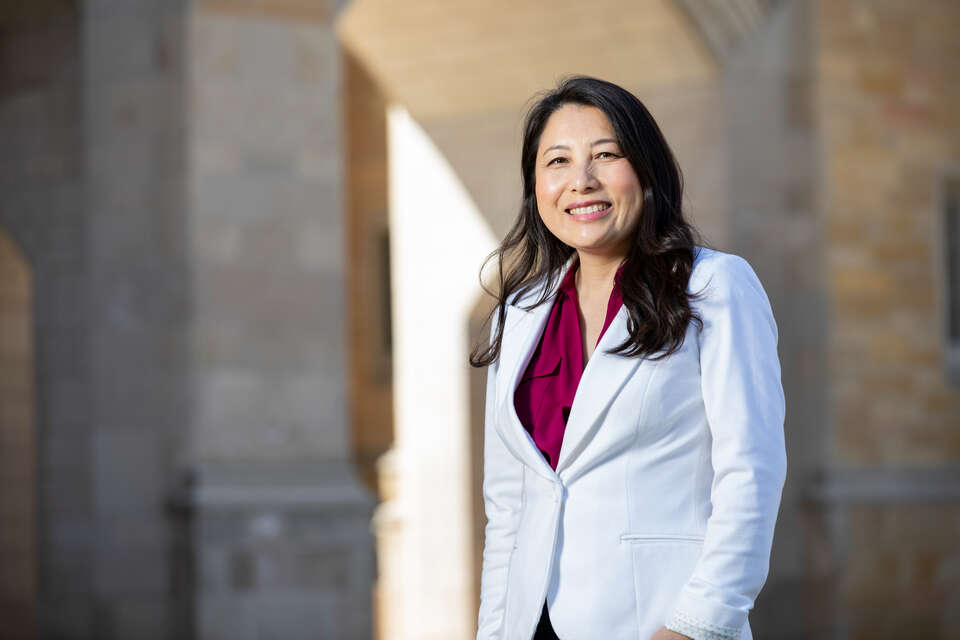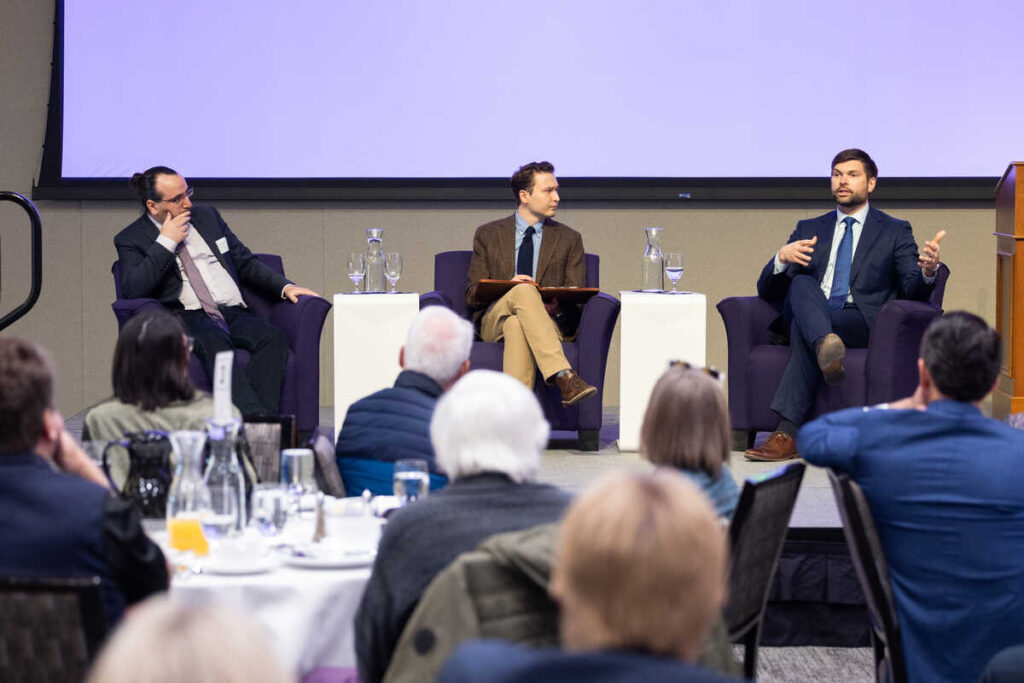A 20-year veteran of political reporting, Patrick Condon ’95 has covered statehouses for newspapers and The Associated Press in North Dakota, Washington state and Minnesota. Since 2014 he has been a member of the Star Tribune’s capital coverage team, right in the middle of the state’s political maneuverings.
In the midst of one of the more interesting election seasons in recent memory, the Newsroom sat down with Condon to get his thoughts on Minnesota’s political system, covering this year’s national conventions and the danger of his peers' dwindling numbers.
Editor’s note: This interview has been edited for clarity and length.
Did you get a sense early on for the responsibility that goes with your job and the feel that it’s important for people to know this kind of stuff?
Absolutely. That’s something that was drilled in during [journalism] school at St. Thomas, but then also with editors all the way along. The role newspapers play in society, in keeping government in check, that appeals to me. The way I went into it, it wasn’t a top priority at first; I understood its importance in an abstract way. Some journalists go into it more specifically for that watchdog, investigative role. My view was more of the storytelling aspect to start, but the longer I’ve done this the more those issues have come into view. I’ve seen inefficient government, dishonest politicians in action, the way the system can fail people. It’s made me more personally committed to that aspect of why journalism exists.
Across all these locations and years, what things are the same in general for government?
I’ve covered state government in three states: North Dakota, Minnesota and Washington state. Those are all sort of known as more or less clean state governments. It’s not like Illinois, New Jersey. I’ve covered scandals, but never a system that I consider endemically corrupt. It’s mostly good people with good motives and intentions, but they do get sucked up into a system that’s larger than any one person and does require certain compromises, whether having to hold your tongue about something you normally wouldn’t, or making an alliance with someone you would under normal circumstances consider unsavory. Ethical people can function in those systems, but it’s harder sometimes. I’ve seen that throughout anywhere I’ve covered politics: good people trying to navigate this system, not always successfully, but usually they do it well.
Is there a difference in how people consume political news in today’s day and age in terms of levels: local, state, national? Are they more cynical? Is there a scale when it comes to people’s views of those tiers of government?
Most people interact with politics as one long spectrum and don’t draw a big distinction between, say, a member of Congress and a member of the legislature. It’s, ‘They’re all crooks, they’re all corrupt.’ The readers I tend to hear from are filtering through one partisan spectrum or another. You’ll get really ticked off Republicans emailing or leaving voicemails. Or the opposite, people angry filtering through a completely left-wing perspective. You get used to it. I like getting feedback from readers, but I don’t like to argue my story with readers. I like to let the story speak for itself.
Do you find that partisan discourse has grown worse in our society? Does that affect things on the state level like it seems to do so drastically on the national level?
Covering the state legislature versus times I’ve covered city government, state legislatures are very partisan places and everything is organized within that partisan principle. People who’ve been doing this longer than I have say it’s gotten worse over time. I don’t know how seriously to take those claims, but I believe there’s some truth to them. In my time covering the Minnesota government, on and off over 12 years and full time the last five, I see the same partisan pitfalls happening over and over. Different players but the same results. There have been two state government shutdowns in the last decade. The same thing is happening where a governor of one party can’t strike a deal with a leader of the other party. When you see [state shutdown] twice in the last 10 years after never happening previously, you start to think maybe things are getting more partisan here.
You covered both national conventions this summer. What was that experience like and what was your sense of each party through that lens in 2016?
Both conventions and both Minnesota delegations had things in common, in that both had party division. Probably more than we’ve seen in recent cycles. The idea of the convention is where everyone comes together on the same page. There were these big blowups you saw, like the [Ted] Cruz thing [refusing to endorse Donald Trump]. And the Minnesota delegation was not a Trump delegation at all; there were only a few genuine supporters of him and the rest were mostly Cruz and [Marco] Rubio supporters. Same thing with the Democrats: The Minnesota delegation was more [Bernie] Sanders than [Hillary] Clinton. You see that and think these are pretty interesting times. It does show the way these divisions are getting more stark even within both parties. Things are polarizing in some ways even within the parties.
John Oliver recently had a piece on "Last Week Tonight" talking about the decline of government reporters in recent years. From 2003-14 there was a 35 percent decline in full-time statehouse reporters. Is that a dangerous thing?
It is a bad thing. That is something I’ve seen over 20 years in being parts of various state’s press corps: It has shrunk. North Dakota’s is smaller now by two or three people. The Minnesota press corps in the late 1990s was much larger than it is now. The Star Tribune had five or six and we now have four, which is great comparatively because you’re not going to find many papers around the country that have four reporters at the state capital. The Pioneer Press’ is way smaller; smaller publications that used to cover the legislature have pulled back; some smaller papers around the state used to send reporters during session and don’t do that anymore. It’s unfortunate. It means less scrutiny of individual legislators, their committees. The less sexy stories, but very important stories, are less likely to get covered. There is an audience for that news. We’re lucky in Minnesota where more people pay attention, but there’s an audience everywhere for good coverage of state government.
